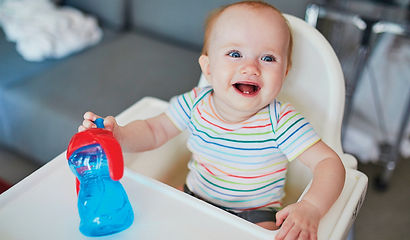
Early Infant Oral Care
Perinatal and Infant Oral Health
The American Academy of Pediatric Dentistry (AAPD) recommends that all pregnant women receive oral healthcare and counseling during pregnancy. Research has shown evidence that periodontal disease can increase the risk of preterm birth and low birth weight. Talk to your doctor or dentist about ways you can prevent periodontal disease during pregnancy.
When Will My Baby Start Getting Teeth?
The process of baby (primary) teeth coming through the gums into the mouth, is variable among babies. Some babies get their teeth early and some get them late. In general, the first baby teeth to appear are usually the lower front teeth and they usually begin erupting between the age of 6-8 months.


Baby Bottle Tooth Decay (Early Childhood Caries)
One serious form of decay among young children is baby bottle tooth decay. This condition is caused by frequent and long exposures of an infant's teeth to liquids that contain sugar. Among these liquids are milk (including breast milk), formula, fruit juice and other sweetened drinks.
Causes of baby bottle tooth decay:
-
Frequent milk bottle feeding at night
-
Bottle feeding with juice at night
-
Not brushing a baby’s teeth at least twice a day
-
Prolonged milk bottle feeding beyond 12 to 18 months of baby’s age.
Prevention of baby bottle tooth decay:
-
Avoid frequent night time bottle feeding habits
-
Putting a baby to bed for a nap or at night with a bottle other than water can cause serious and rapid tooth decay
(If you must give the baby a bottle as a comforter at bedtime, it should contain only water) -
After each feeding, wipe the baby's gums and teeth with a damp washcloth or gauze pad to remove plaque.
Sippy Cups
Sippy cups should be used as a training tool from the bottle to a cup. If your child uses a sippy cup throughout the day, fill the sippy cup with water only (except at mealtimes), this will help prevent soaking the child’s teeth in cavity causing bacteria.

